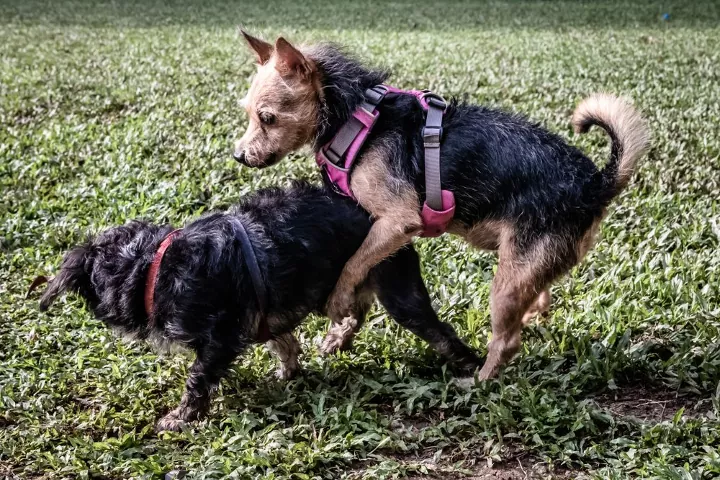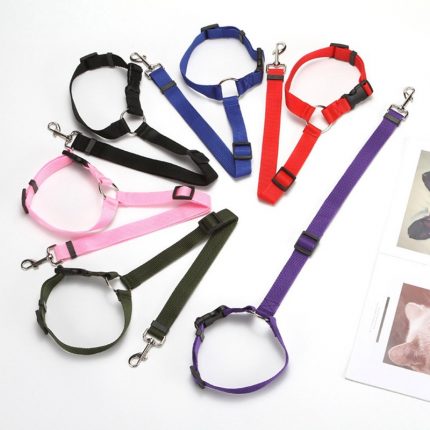Understanding Why: The Surprising Reasons Why Do Neutered Dogs Attack Unneutered Dogs?
Neutering dogs, also known as spaying or castration, is a common practice undertaken by responsible pet owners to control the population of unwanted puppies and prevent certain health issues. However, an intriguing phenomenon has been observed in some neutered dogs: they may exhibit aggressive behavior towards unneutered dogs. This raises the question: why do neutered dogs attack unneutered dogs?
Understanding the underlying factors contributing to this behavior is crucial for dog owners and professionals involved in dog behavior and training. While aggression can arise from various causes, such as fear, dominance, or territoriality, the specific dynamics between neutered and unneutered dogs warrant further investigation.

In this article, we will delve into the potential reasons behind neutered dogs attacking unneutered dogs. We will explore the biological, hormonal, social, and psychological aspects that may contribute to this phenomenon. By shedding light on these factors, we hope to provide insights and guidance for dog owners, trainers, and veterinarians on how to prevent and manage such aggressive encounters.
It is important to note that not all neutered dogs exhibit aggressive behavior towards unneutered dogs, and every dog is an individual with unique experiences and temperaments. Nevertheless, understanding the potential triggers and motivations behind this behavior can help create a safer and more harmonious environment for both neutered and unneutered dogs.
In the following sections, we will examine the main factors that may influence neutered dogs to attack unneutered dogs. By gaining a deeper understanding of these dynamics, we can work towards effective strategies to prevent and address such aggression. Let us now explore the various contributing factors and delve into the complexities of this issue.
The Dynamics of Neutered Dogs Attacking Unneutered Dogs
Hormonal Influence
One potential explanation for neutered dogs attacking unneutered dogs lies in the hormonal changes that occur after the neutering procedure. When a male dog is neutered, the production of testosterone significantly decreases. Testosterone plays a crucial role in regulating aggression and territorial behavior in dogs. Without sufficient testosterone levels, neutered dogs may exhibit heightened aggression towards intact (unneutered) dogs as a result of altered hormonal balance.
Perceived Threat and Competition
Neutered dogs may perceive intact dogs as a threat or competition, especially in social situations. Dogs are inherently social animals with a hierarchical structure. Neutered dogs may feel the need to establish dominance or protect their territory when encountering unneutered dogs. This can lead to aggression as a defensive response to perceived threats to their social standing or resources.
Socialization and Behavioral Conditioning
The way a neutered dog is socialized and conditioned to interact with other dogs can also influence their behavior towards unneutered dogs. If a neutered dog has had negative experiences or lacks positive socialization with intact dogs, they may develop a tendency to display aggression towards them. This can be due to fear, past conflicts, or a lack of understanding of appropriate social cues.
Psychological Factors
Neutered dogs may also exhibit aggression towards unneutered dogs due to psychological factors. Dogs are complex beings with unique personalities and individual experiences. Some neutered dogs may have underlying anxiety, fear, or insecurity issues that can manifest as aggression towards intact dogs. These psychological factors can be influenced by past trauma, inadequate socialization, or genetic predispositions.
Conclusion
In conclusion, understanding Why Do Neutered Dogs Attack Unneutered Dogs is crucial for pet owners seeking to foster harmonious relationships among their canine companions. For more in-depth insights into this behavior and strategies for managing it, visit geepets.com, where experts share valuable advice and recommendations tailored to your pet’s needs.
Additionally, for further reading and resources on dog behavior, training tips, and health advice, checking out The American Kennel Club can provide you with a wealth of information to help you better understand and care for your furry friends. Both of these resources can be invaluable in helping pet owners navigate the complexities of canine behavior and ensure a peaceful, happy home for both neutered and unneutered dogs.

Practical Recommendations for Preventing Aggression
1. Early Neutering and Socialization
One of the most effective ways to prevent aggression in neutered dogs is to ensure early neutering and proper socialization. Neutering at an early age, as recommended by veterinarians, can help reduce the likelihood of aggressive behavior towards unneutered dogs. Additionally, exposing neutered dogs to a variety of positive social experiences with other dogs, including both neutered and intact, can help them develop appropriate social skills and reduce the chances of aggression later in life.
2. Positive Reinforcement Training
Implementing positive reinforcement training techniques is crucial in managing and modifying aggressive behavior in neutered dogs, particularly when addressing the question of why do neutered dogs attack unneutered dogs. Reward-based training methods, such as clicker training or treat rewards, can help redirect their focus and reinforce desirable behaviors.
This approach not only tackles the issue of why do neutered dogs attack unneutered dogs by promoting a positive association with other dogs, including unneutered ones, but also helps build confidence and trust. Understanding why do neutered dogs attack unneutered dogs is key to addressing the root of the aggression. By focusing on positive reinforcement, owners can work towards mitigating this behavior, answering the complex question of why do neutered dogs attack unneutered dogs while fostering a safer, more harmonious environment for all dogs involved.
3. Controlled Introduction and Supervision
When introducing a neutered dog to an unneutered dog, it’s crucial to ponder the question, “Why do neutered dogs attack unneutered dogs?” Understanding the dynamics at play can inform a more controlled and supervised environment for their introduction.
The process should involve gradual introductions, possibly using leashes or barriers if necessary, to help both dogs acclimate to each other’s presence without feeling threatened. This consideration is especially important in light of understanding why do neutered dogs attack unneutered dogs, as it can highlight the potential for dominance or territorial behavior that may need to be managed carefully.
Close supervision during initial interactions is essential, allowing for immediate intervention if any signs of aggression arise, ensuring the safety of both dogs. This step is critical when addressing the concern of why do neutered dogs attack unneutered dogs, as it allows the owner or handler to manage the situation promptly, minimizing risks and promoting a positive interaction between the dogs.
4. Seek Professional Guidance
If a neutered dog consistently exhibits aggression towards unneutered dogs, it is advisable to seek professional guidance from a certified dog behaviorist or veterinarian. These experts can assess the specific circumstances and provide tailored recommendations and training plans to address the underlying causes of aggression. They may also suggest additional techniques, such as desensitization and counter conditioning, to help modify the dog’s behavior.

5. Responsible Ownership and Community Education
Promoting responsible dog ownership and educating the community about the importance of neutering and proper socialization is essential in preventing aggressive encounters between neutered and unneutered dogs, a phenomenon often questioned under “Why Do Neutered Dogs Attack Unneutered Dogs.” Understanding the dynamics of “Why Do Neutered Dogs Attack Unneutered Dogs” can shed light on the importance of these preventive measures. Encouraging neutering programs, organizing educational workshops, and advocating for positive training methods can help create a safer and more harmonious environment for all dogs, while also addressing the underlying questions around “Why Do Neutered Dogs Attack Unneutered Dogs.”
Our featured products:
By delving into the reasons behind “Why Do Neutered Dogs Attack Unneutered Dogs,” the community can learn about the hormonal and behavioral differences influencing such interactions. This understanding is crucial for implementing effective strategies to mitigate risks and ensure peaceful coexistence among dogs, regardless of their neutering status. In educating about “Why Do Neutered Dogs Attack Unneutered Dogs,” it becomes evident that neutering, alongside proper socialization, plays a significant role in curbing potential aggression, highlighting the need for widespread community engagement and support for neutering initiatives and educational efforts focused on the well-being of all dogs.
6. Regular Health Check-ups
Regular veterinary check-ups are crucial for the overall well-being of dogs, including those that have been neutered. Routine examinations can help identify any underlying health issues that may contribute to aggression or behavioral changes. Maintaining a healthy lifestyle, including proper nutrition and exercise, can also contribute to a dog’s overall temperament and reduce the likelihood of aggression.
By implementing these practical recommendations, dog owners can mitigate the risk of aggression in neutered dogs towards unneutered dogs. Remember, each dog is unique, and it is important to approach training and behavior modification with patience, consistency, and a focus on positive reinforcement. Together, we can create a safer and more harmonious environment for all dogs.















